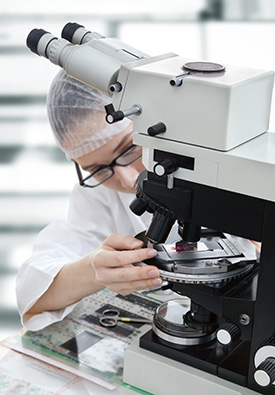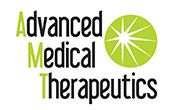Genetic Cancer Screening in Homestead, FL

The Rise of Genetic Testing
Genetic testing has increased in popularity and decreased in price over the course of the last decade. The number of conditions it is possible to test for has grown to meet the rising demand. It’s now possible to test for genetic mutations in soon-to-be parents, in newborns, and prenatally to predict the chances of a child inheriting certain conditions.
It is also possible to predict cancer risks. This is often done for individuals with a family history of cancer. Knowing you are at increased risk for certain cancers can help you make lifestyle choices to prevent them.
How Testing Works
Genetic cancer screening starts with a DNA sample. This typically comes from blood , saliva , amniotic fluid or skin cells. Once a sample has been collected, it is sent to a lab where your DNA is tested for certain mutations or genetic precursors. The lab sends test results to your healthcare provider who will then meet with you to discuss what they mean.
Positive test results may confirm the presence of mutations which increase your risk for developing certain cancers. A positive result may also identify you as a carrier for certain genetic traits which may put your children at risk should they inherit them. It should be noted that a positive test result is not always a death sentence or something to panic about. In most cases, it is nothing more than information to keep in the back of your mind to guide your decisions. For instance, someone at high risk for developing lung cancer may make the extra effort to stay away from cigarettes’ or second-hand smoke. Knowing you’re high risk for breast cancer may motivate you to perform regular self-exams.
Negative test results mean that the genetic indicators you screened for were not found. While this is typically good news, it is not a “get out of jail free” card. Genetics are just one piece of the puzzle in developing cancer. Your lifestyle choices and environment influence your chances of developing life-threatening genetic mutations.
BRCA1 and BRCA2
Certain genetic mutations and variations are stronger indicators of cancer risk than others. BRCA1 and BRCA2 (whose names are an abbreviation of “breast cancer”) are genes which work to produce tumor-suppressing proteins. Mutations in these genes can greatly increase the risk of developing breast or ovarian cancer in women and a variety of other cancers in both sexes.
You also have a 50% chance of passing mutations in these genes on to your children. Those with mutations in their BRCA1 or BRCA2 genes frequently take drastic measures to reduce their risks (often choosing to undergo preemptive mastectomies or extreme lifestyle changes).
Making Informed Decisions
If cancer runs in your family or if you believe you are at greater risk, ordering a genetic cancer screening may be right for you. Regardless of your situation, it can never hurt to be prepared. Knowing your risk is the first step in making the changes needed to reduce it. Find out your risk today! Call (561) 623-9344 or contact Dr. Mark Rosenberg online.
Advanced Medical Therapeutics LLC
Address
6100 Glades RoadSuite 304
Boca Raton, FL 33434
(561) 623-9344
www.amtcare.com
Hours
Mon:
8:30 am - 4:30 pm
Tue:
8:30 am - 4:30 pm
Wed:
8:30 am - 4:30 pm
Thu:
8:30 am - 4:30 pm
Fri:
8:30 am - 4:30 pm


